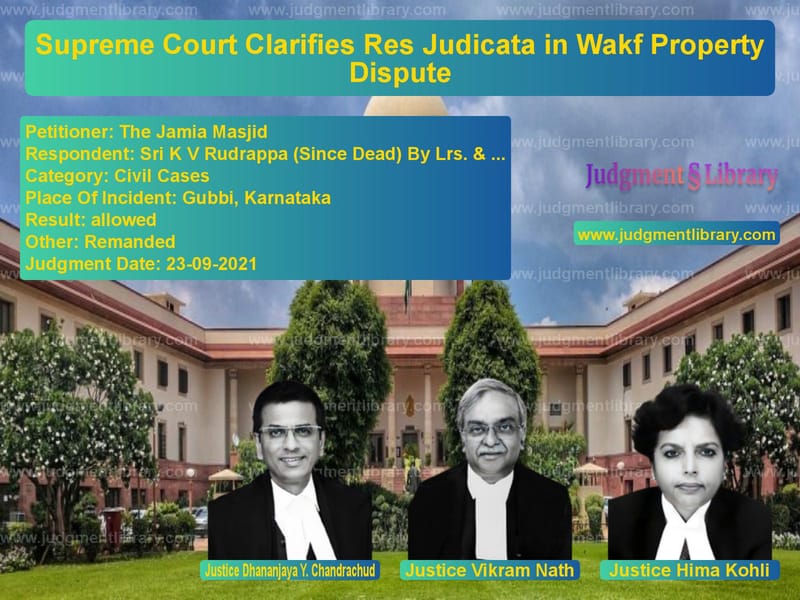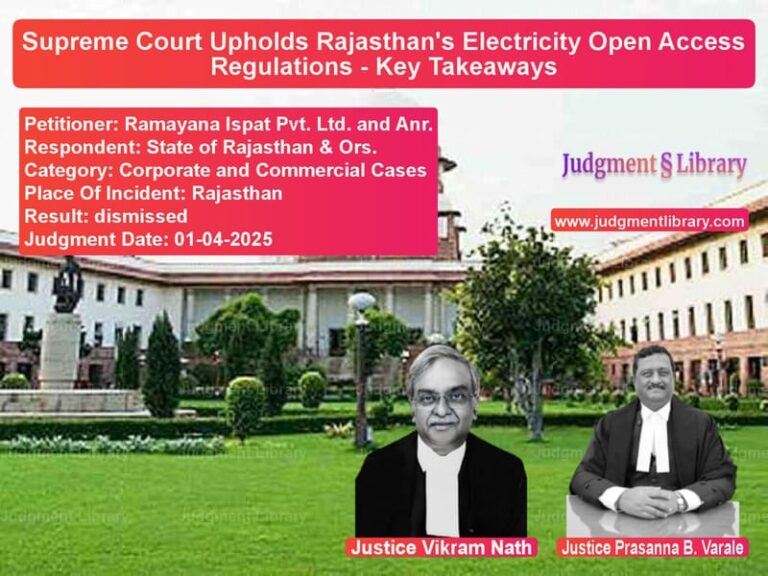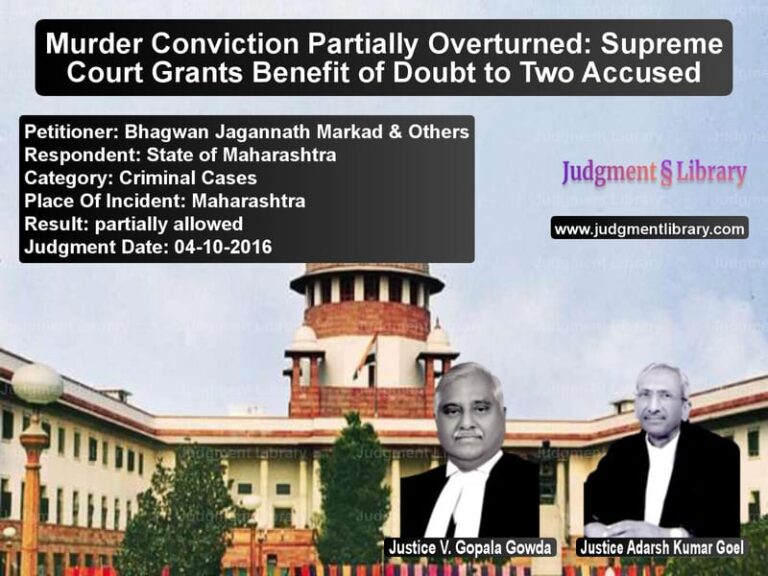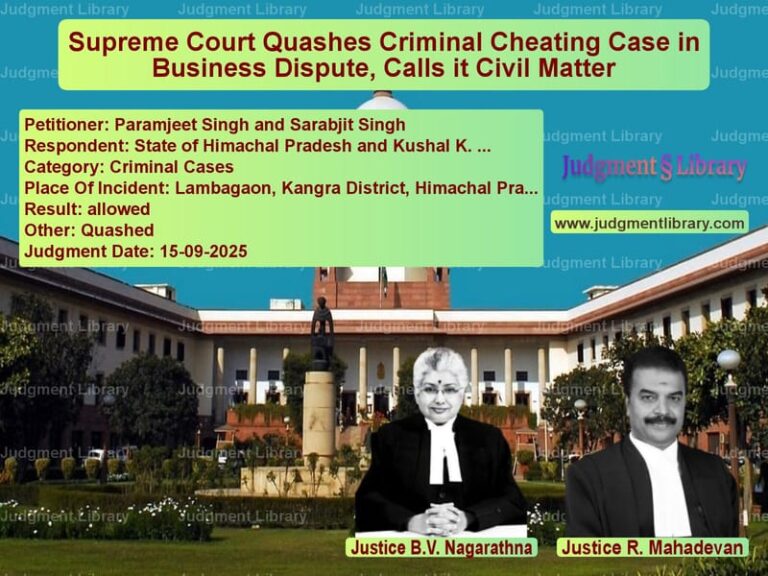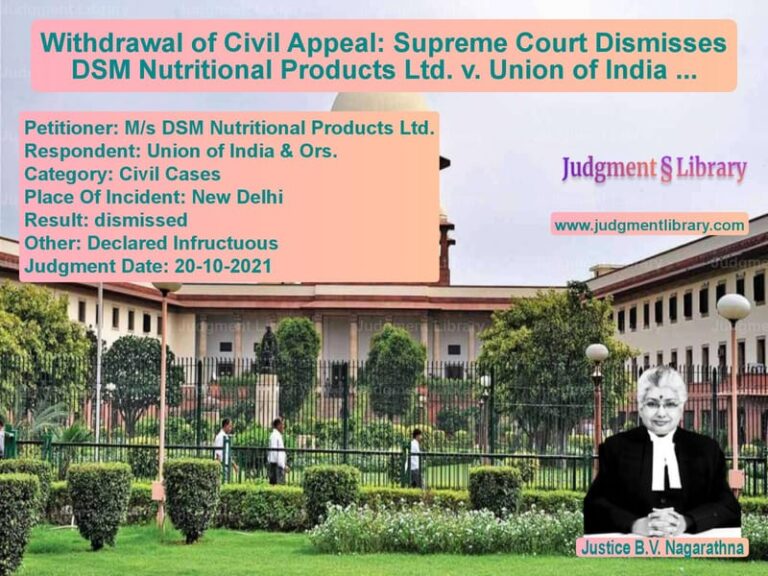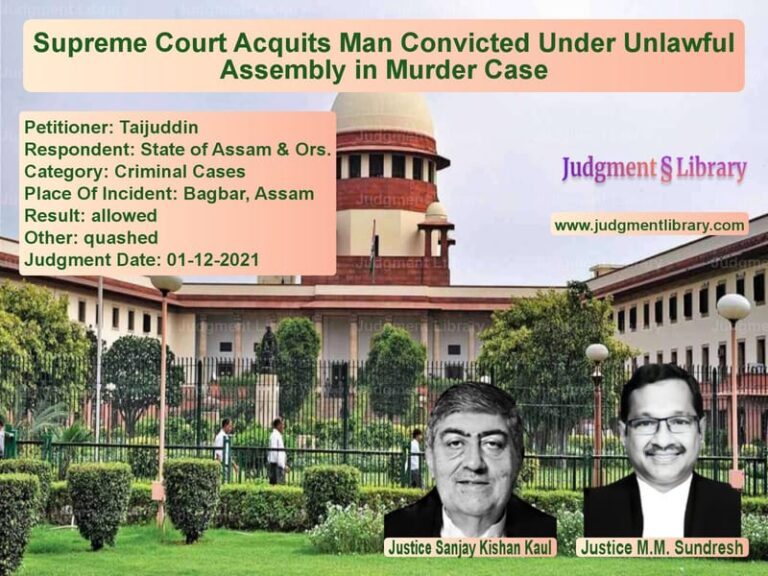Supreme Court Clarifies Res Judicata in Wakf Property Dispute
The case at hand involves a long-standing legal dispute concerning the ownership of land attached to the Jamia Masjid Gubbi. The Supreme Court was called upon to determine whether the current lawsuit filed by the mosque was barred by the principle of res judicata, given the existence of multiple prior suits involving the same property. The ruling provided much-needed clarity on the application of res judicata in the context of religious and wakf property disputes.
Background of the Case
The appellant, Jamia Masjid Gubbi, represented by its president, filed a suit seeking:
- A declaration that the State Wakf Board is the owner of the suit schedule property.
- A decree for possession against the defendants.
- An injunction to restrain the defendants from interfering with the property.
- A decree for mesne profits.
The dispute centers on a piece of land classified as a ‘Khazi Service Inam’ which had historically been managed by the mosque but was later claimed by private individuals. The mosque contended that the property was registered as wakf property and that its alienation was illegal. However, the defendants argued that prior court rulings had already determined ownership, thereby barring a fresh lawsuit.
Read also: https://judgmentlibrary.com/supreme-court-enhances-compensation-in-noida-land-acquisition-case/
Legal Issues Considered
- Whether the present suit was barred by res judicata.
- Whether the previous rulings conclusively determined the ownership of the property.
- The significance of a compromise decree in a prior suit and its impact on subsequent litigation.
Arguments by the Appellant
- The appellant argued that the prior suits did not conclusively determine ownership.
- The compromise decree in an earlier case did not amount to an abandonment of rights over the property.
- The mosque’s claim was based on a valid notification declaring the property as wakf land.
- The prior suits were either administrative in nature or related to possession, not ownership.
Arguments by the Respondents
- The respondents contended that the issue of ownership had already been settled in previous suits.
- The suit was barred by res judicata since the mosque was a party to the earlier litigation.
- The compromise decree confirmed the title of the property in favor of the defendants.
- The claim was being revived after an unjustified delay, making the lawsuit untenable.
Supreme Court’s Observations
The Supreme Court, comprising Justices Dhananjaya Y. Chandrachud, Vikram Nath, and Hima Kohli, analyzed the matter in depth and made the following key observations:
- The court reaffirmed that a representative suit under Section 92 CPC binds all interested parties, making them subject to the doctrine of res judicata.
- The earlier suit (OS 92/1950-51) had only made a prima facie determination that the suit property did not belong to the mosque but did not conclusively declare ownership in favor of the defendants.
- While a compromise decree can bar subsequent litigation, in this case, the decree only concerned possession and did not adjudicate on ownership.
- The withdrawal of a prior suit by the Wakf Board did not amount to relinquishment of ownership rights.
Final Judgment
The Supreme Court set aside the High Court’s decision, allowing the mosque’s suit to proceed. The key directives included:
- The High Court had erred in applying res judicata as the ownership issue was never conclusively determined in the earlier cases.
- The compromise decree in the prior litigation did not bar the mosque’s claim.
- The case was remanded to the trial court for a full-fledged trial on its merits.
- The trial court was directed to expedite proceedings and resolve the case within one year.
Conclusion
This judgment clarifies that the doctrine of res judicata cannot be applied mechanically, particularly in cases involving religious and wakf properties. The Supreme Court emphasized the importance of distinguishing between procedural findings and substantive determinations of ownership. The ruling ensures that religious institutions are not unfairly deprived of their rights due to procedural technicalities.
Petitioner Name: The Jamia Masjid.Respondent Name: Sri K V Rudrappa (Since Dead) By Lrs. & Others.Judgment By: Justice Dhananjaya Y. Chandrachud, Justice Vikram Nath, Justice Hima Kohli.Place Of Incident: Gubbi, Karnataka.Judgment Date: 23-09-2021.
Don’t miss out on the full details! Download the complete judgment in PDF format below and gain valuable insights instantly!
Download Judgment: the-jamia-masjid-vs-sri-k-v-rudrappa-(si-supreme-court-of-india-judgment-dated-23-09-2021.pdf
Directly Download Judgment: Directly download this Judgment
See all petitions in Property Disputes
See all petitions in Landlord-Tenant Disputes
See all petitions in Specific Performance
See all petitions in Judgment by Dhananjaya Y Chandrachud
See all petitions in Judgment by Vikram Nath
See all petitions in Judgment by Hima Kohli
See all petitions in allowed
See all petitions in Remanded
See all petitions in supreme court of India judgments September 2021
See all petitions in 2021 judgments
See all posts in Civil Cases Category
See all allowed petitions in Civil Cases Category
See all Dismissed petitions in Civil Cases Category
See all partially allowed petitions in Civil Cases Category

